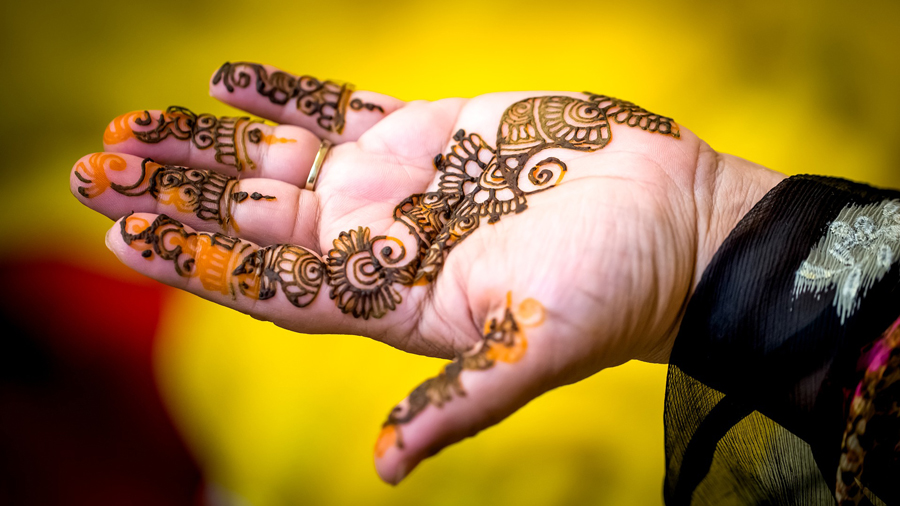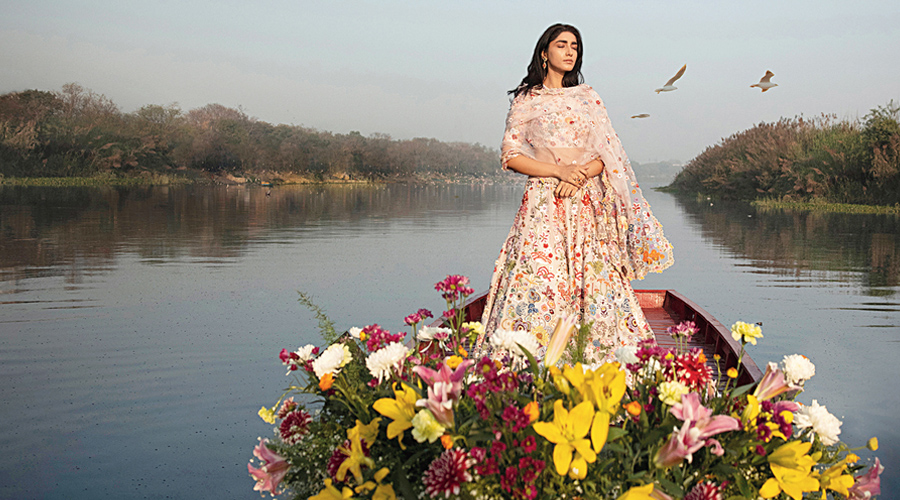The more things change, the more they remain the same, or so goes the adage. But that was before Covid-19 brought the world to its knees. One of the most drastic changes has perhaps been for the Big Fat Indian wedding, which the virus has shrunk to size zero overnight. A typical Indian wedding, till recently, could last for days with multiple extravagant events. There were reasons for it too. In addition to endless singing and dancing, time and space had to be allotted to ritual turmeric baths, mehendi sessions, sit-down dinners — all of which would climax, after a slow, torturous grind, in the form of a grand traditional wedding ceremony. The guest list — families, friends and co-workers cannot be left out — ran for miles. Unbridled ostentatiousness, changing aspirations — the template of the celebrity wedding is no longer out of reach for ambitious middle class families — and greater economic heft kept fattening the Great Indian Wedding.
Then, last year, the Great Indian Wedding was forced to shed weight. Pandemic-induced restrictions led to a cap on the number of wedding guests. The second wave of the virus is expected to turn the wedding industry even leaner. Over one crore people associated with the industry, directly or indirectly, are estimated to have lost their jobs owing to the pandemic. As the wedding industry clutches on to e-invitations and Zoom meets for survival, allied services and personnel, such as printing establishments and artisans who work in the ateliers of fashion designers, are enduring losses.
In this context, what the virus has done is raise, quite inadvertently, questions on a people’s relationship with ethics and consumption. Could the pandemic then bring about a decisive transformation in contemporary culture’s endorsement of excess, ostentation and pomp? After all, in this age of the pandemic, Indian couples are increasingly resorting to organize smaller — more intimate — ceremonies. There is a bit of altruism thrown in too: a newly-married couple in Bengal donated the money meant for their wedding feast to feed the poor. But vanity, much like the virus, cannot be eradicated with ease. Reports show that those who are not able to have the destination wedding of their dreams are splurging on a designer trousseau instead; guests who can no longer make it to the wedding are being sent lavish gifts; and the menu, instead of being spartan, is getting even more elaborate. The pandemic has changed the way people live, but cultural traditions — weddings and their paraphernalia — appear to be far more resilient. This brings to the fore a worrying possibility. It seems that even disruptions and death of the scale that the world has witnessed in the course of the coronavirus have not been enough for sections of affluent Indians to turn empathetic to suffering. The Great Fat Indian Wedding that survives, albeit in a trimmer shape, may well be an embodiment of a shocking insularity.












